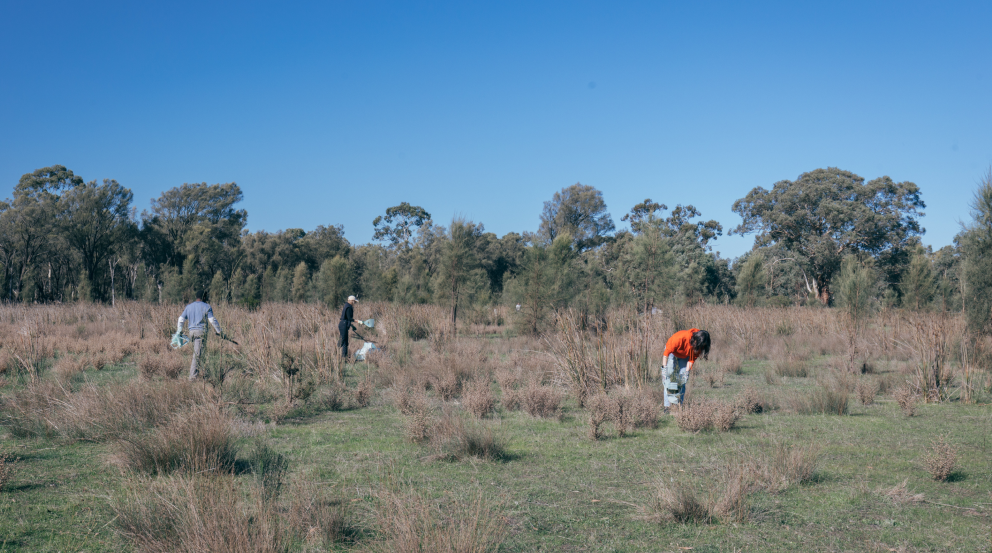As COVID-19 impacts the Australian retail sector, streetwear label HoMie – a Bank Australia Impact Fund recipient for 2020 – is still supporting, inspiring and educating Melbourne’s next generation of creatives.
“We’re finding the life skills, the intangibles, are having the biggest impact,” HoMie co-founder Nick Pearce told us back in 2018. “Those things are hard to quantify, but they’re so important.”
Nick was talking then about the Melbourne-based streetwear label’s Pathway Alliance program – an innovative internship program that provides young people (aged 16-25) affected by homelessness or hardship with an education spanning retail, social and life skills.
And two years on, even in the face of COVID-19, the program is alive and kicking.
“There have been challenges,” admits Nick, “and we’ve had to make some changes here and there, but we’re still optimistic. ‘Finding a way’ has been our theme through all of this, and there’s still a lot we can do with relatively little.”
The program had to pivot slightly to account for the impact of the pandemic – in-store training has been swapped for remote learning, for one – but the brand was still able to launch their aptly named ‘REBORN’ line and use it as a tool to make good on their commitment to young people. A Bank Australia Impact Fund recipient for 2020, HoMie will use the grant to help support the Pathway Alliance program through 2020 and beyond.
Coz, a 21-year-old designer who moved to Melbourne from Newcastle, is a participant of the program this year and one of the driving creative forces behind the REBORN line, which turns pre-loved clothes into upcycled works of wearable art.
Coz was introduced to HoMie last year by Youth Projects, her job network. “I had been offered some work before but my mental health was a bit scattered,” she says. “Then they told me about HoMie, and how their program is about helping young people, and I was like…awesome.”
Coz works for HoMie two days a week, designing and making clothes for the REBORN line while working on her Cert III in retail – all facilitated by the HoMie team (remotely) and fully accredited by Knowledge Space.
“In the mornings, we have a FaceTime call and just plan the day,” Coz says of a typical day at work, which often begins with Marcus, HoMie’s creative director, dropping off some clothes for her to work her magic on. “We have a group chat where we send inspiration and stuff, but otherwise I’m given a lot of freedom to do what I want. I’ll send Marcus photos of what I’m working on and he’ll give feedback, but they’ve been pretty much into whatever I’ve been doing! It’s been so chill.”
Coz, who’s faced challenges with substance use and her mental health, had her own small clothing line before she connected with HoMie, but says she lacked any kind of ‘proper’ business skills or creative support. With HoMie, she’s found both.
The program isn’t just about providing people with an education in the world of retail or business, either. It’s about giving young people the social and life skills they need to thrive in all aspects of their lives. The “intangibles”, as Nick puts it.
“We get set homework and we all actually want to do it,” says Coz. “It’s all about our personal stuff – and maybe sometimes we’ll get extra homework about mindfulness, and other general mental health things that can help us. They’ve just been so on top of looking out for us.”
As well as helping Coz with things like tax advice and how much she should pay herself, the HoMie team have provided the kind of above-and-beyond support she needs to thrive both inside and out of work.
And as far as Nick is concerned, the general life, social and business skills the program encourages are as invaluable to those at risk of homelessness as finding them a home. “You can’t just put someone under a roof and say, ‘good luck, see you later!’,” he says. “They need to pay their bills and rent. That’s where we think the value is in our program, in helping people become self-sufficient. We know new clothes won’t help solve homelessness, but we think access to opportunities can.”
There’s a sense of community in Pathway Alliance program too, and the classes give young people with similar lived experiences an opportunity to connect, share their stories, and foster friendships. Aside from the positive impacts the program has had on her own sense of self-worth, Coz has seen firsthand how it’s helped other participants. “We all realised that our biggest insecurity was being scared that people hate us,” she says. “But we’ve learned so much about moving past that. The amount of progress we’ve made is crazy.”
What began in 2015 as a way to break down the stigma associated with homelessness now helps dozens of young people help themselves to a better life each year. At the end of their time in the program, graduates will have a Cert III in retail, six months of practical work experience, and eight months of personal training and development under their belts.
“It sounds so cringey, but this is the most supported I’ve ever felt,” says Coz. “Especially coming from a small town – ‘creative stuff’ can be pretty frowned upon. But this has been heaps uplifting. It just felt like exactly what I had been waiting for.”
An Impact Fund recipient for 2020, HoMie will use the grant to help fund and support the Pathway Alliance program through the remainder of 2020 and beyond.








